|
|
||
|
Pro Tools
FILMFESTIVALS | 24/7 world wide coverageWelcome ! Enjoy the best of both worlds: Film & Festival News, exploring the best of the film festivals community. Launched in 1995, relentlessly connecting films to festivals, documenting and promoting festivals worldwide. Working on an upgrade soon. For collaboration, editorial contributions, or publicity, please send us an email here. User login |
Bimal Roy Film Festival: Dharmendra, Helen, Ameen Sayani honoured
Bimal Roy Film Festival: Dharmendra, Helen, Ameen Sayani honoured Cinemas in Mumbai usually play the country’s national anthem, ‘Jana gana mana’, written by Rabindranath Tagore, before the feature film, a practice mandated by the government. Two weeks ago, at the Bharatiya Vidya Bhavan (BVB) in south Mumbai, which is not a regular cinema hall, the song was played as part of the Bengali film that had incorporated it in its credit titles. Udayer Pathe (on the way to enlightenment) was made in 1944, in Kolkata, by Bimal Roy, who had passed away exactly 50 years before this commemorative event, at the age of 55 (best guess) of lung cancer, a consequence of long-term smoking addiction. I have vague memories of having seen the film at the National Film Archive of India (NFAI) nearly forty years ago. Udayer Pathe was re-made in Hindi as Humrahi (fellow traveller), which I have not had a chance to see. On the 11th of January 2016, the complete film was not shown, just the song, which was yet to become the national anthem, India was still being under British rule in 1944. Thus began the six-day Bimal Roy Film Festival/retrospective, jointly organised by Bimal Roy Memorial and Cine Society (now run by Shiraz Ali, son of late Abdul Ali, a doyen of the vintage Indian cinema league), one of the oldest film societies in Mumbai. These days, Cine Society holds its regular screenings at the Bhavan. Yogesh Kamdar, my friend since 1973, an Electrical Engineer and a Joint Director of the Bhavan, managed venue and screening related matters at the retrospective. Frankly, I was not invited to the event. It was free, and open to the public, but one had to go and get passes from the venue. Bimal Roy Memorial has never invited me to any event, neither has Cine Society. Shiraz Ali, who I met in the Bhavan’s foyer, after at least a decade, assured me that he would put me on the society’s mailing list. Yogesh, who does not separately invite me to events organised by BVB (most of them are free, and seating is on a first-come-first-served basis), gave me a VIP seat, from the few he had kept for guests. Almost packed to capacity, I would have found it difficult to gain entry without the special pass.
Anwesha with Dharmendra NFAI provided Blu-Ray disc copies of the six films screened, one-a-day, from Monday to Saturday. Bimal Roy’s daughter, Rinki Roy Bhattacharya (Founder-Chairperson of Bimal Roy Memorial and Film Society, Vice Chairperson: Children's Film Society of India--CFSI), grand-daughter Anwesha (who curated the festival and specially flew in from England), and actress Nivedita Baunthiyal, General Secretary of the Indian People’s Theatre Association (IPTA), represented the Memorial, which, besides honouring cinema veterans, runs a film society too. Anwesha is a Ph.D., lives in England and lectures on cinema. Her mother-in-law, Sulabha Arya is a very senior stage, television and film actress, and I once had the honour of playing her husband, in TV a series called Yeh Bhi Hain Udyog. Rinki is multi-faceted: journalist, activist, filmmaker-author-researcher, and more. Shabana Azmi, veteran actress and like a second mother-in-law to Anwesha, turned-up unannounced to surprise the family, and joined in the lighting of the lamp ceremony, to mark the formal inauguration. Earlier, Anwesha was invited to be part of the Dada Baba (Kaifi Azmi, Shabana's father) birth anniversary get-together at Janki Kutir, in suburban Juhu, next to the reputed drama venue, Prithvi Theatre. Films showcased during the six days were Do Bigha Zamin, which I had missed all these years, Parineeta (ditto), Devdas (tragic and timeless story of ego and alcoholism; at least two other versions are around, one earlier, another later), Sujata, Madhumati and Bandini. At the inauguration, two luminaries shared the stage, with Rinki, Anwesha and Nivedita: actress Shabana Azmi and actor-turned writer-director Ashutosh Gowarikar.
Both the films I saw at the fest, Do Bigha Zamin and Parineeta, were well-made and quick-paced, a rarity for films of the early 50s. Performances were of a level to savour, what with names like Balraj Sahni, Nirupa Roy, Meena Kumari (special appearance in DBZ and the lead in Parineeta), Nazir Hussain and more. Sound was excellent, thanks to the Blu-Ray restoration by NFAI. One also got to notice the contributions of Roy’s colleagues and team-members, like Hrishikesh Mukherjee (editor, later director), Ritwick Ghatak (writer, later director), Salil Chowdhary (writer, music director), Nabendu Ghosh (screenplay-writer) and Gulzar (lyricist, later director).
Bimal Roy had passed away when my film sensibilities were yet to mature. However, I do remember seeing and liking Madhumati (1958), as a six-year old. For some time after that, Madhumati remained the only Roy film I had seen, having being taken along to the theatre by my brother, Riaz, who was 13 years older. Since then, I have managed to catch up on Bandini, Do Bigha Zamin, Sujata, Parineeta, Yahudi, Devdas and Udayer Pathe. In a unique experience, I heard Parakh on the radio, an audio experience, part of a Vividh Bharati programme which played edited sound-tracks of films. That still leaves more than a handful of ‘misses’ to pursue. Besides the films he directed, I have also been exposed to films that he produced, but let others direct: 1956: Parivar: Asit Sen (later known for his comic roles, mist memorableone being in Bees Saal Baad, 1962), 1957: Apradhi Kaun? Asit Sen (again) and 1964: Benazir: S. Khalil (old-timer actor turned writer-director). Three others are on my “to see list”: 1960: Usne Kaha Tha: Moni Bhattacharjee (a Roy assistant and co-writer), 1968: Do Dooni Chaar: Debu Sen (Roy’s assistant, Debabrata Sengupta; based on Shakespeare’s Comedy of Errors; remade as Angoor by Gulzar) and 1975: Chaitali: Hrishikesh Mukherjee (released almost decade after it was started, with Roy’s widow, Mrs. Manobina Roy, as producer). Among India’s most revered directors, Bimal Roy was born into an old, land-holding (zamindar) family, in former East Bengal, (now Bangladesh). After his father’s death, Roy was thrown out of the zamindari by the estate manager. Young and penniless, he moved to Calcutta, with his mother and infant brothers. As he struggled for work, Promothesh (P.C.) Barua engaged Roy as a publicity photographer. Soon, Roy got to work as an assistant cameraman to Nitin Bose, at Calcutta’s reputed New Theatres Studio. New Theatres classics like Mukti and Devdas bear his stylistic and technical mark. Roy’s directorial debut, Udayer Pathe (1944), took a strong position against class discrimination and used non-theatrical acting style, also setting box office records. By the late 40s, several Calcutta-based directors were forced to shift to Bombay. World War II and partition of the sub-continent into India and Pakistan, spelt ruin for Bengali cinema. Roy, too, moved to Bombay, in 1950. He worked for a while with New Theatres, under the new boss, Ashok Kumar, and directed Maa. In 1952-53, he launched his own banner, Bimal Roy Productions, with Do Bigha Zamin. The film made a strong universal impact for its humane portrayal of Indian peasantry. It is often ranked as one of the 10 best Indian films of all time. Do Bigha Zamin won awards and accolades: in China, UK, Karlovy Vary, Cannes, USSR, Venice and Melbourne. Following-up, he directed Parineeta, based on a Bengali literary classic. Ashok Kumar had parted company with Bombay Talkies and set up his own banner. He had rights to the screen version of the book, an ahead-of-its-time story of a sensitive woman facing issues of class and caste as obstacles in her love and marriage, and invited Bimal Roy to direct it, with highly commendable results.
Dharmendra, Debu Sen and Helen On the closing day, lifetime achievement awards were given to Dharmendra (seen in Roy’s last completed film, Bandini), my Guru Ameen Sayani (83 year-old radio legend and stage compère par excellence, who came with son Rajil and daughter-in-law Krishnajyoti) and Helen (dancing star, part of the cast in Roy’s film Yahudi, seen doing what might be called the fore-runner of today’s ‘item song’). Also present were Bimal Roy’s assistant Debabrata Sengupta (probably in his late 80s, the only surviving assistant of his core team), actor Tarun Bose’s children Aroop and Shilpi (Bose appeared in several of Bimal Roy’s films; died when he was in his early 40s), Biraj Bahu heroine Kamini Kaushal, and dance director Saroj Khan (who had, on the 15th, skipped the not-to-be-missed Filmfare Awards function, to watch Bimal Roy’s Madhumati at BVB instead.
Ameen Sayani with the mike, Dharmenra with the portrait! I was not there at the closing and honouring ceremony, for I had already committed to attending an opening…well, a release, to be precise. A friend was to release his latest novel the same day, and so I could not even say good-bye to Anwesha Arya, who left a couple of days later for London. She is a film-buff, an academic, writer and gender issue specialist. We are now in touch through email. It was so nice to meet her. Warm as ever. Chirpy, but vastly mature. And I did not even know that her niece, Dubai-based sister Chimoo Acharya’s daughter, Drisha, was also present, something I found out only when I saw her picture. This piece was mainly about the legend, Bimal Roy. But another piece is due, on the Bhattacharyas, Acharyas and Aryas. What should Icall that one? An aria? (Bimal Roy on the sets of Bandini, photo courtesy Bimal Roy Memorial and Film Society) 25.01.2016 | Siraj Syed's blog Cat. : Abdul Ali Anwesha Roy Ashutosh Gowarikar Bandini Bharatiya Vidya Bhavan Cine Society Debu Sen Devdas Do Bigha Zamin Helen Humrahi Kamini Kaushal Krishnajyoti Madhumati National Film Archive of India Parineeta Rabindranath Tagore Rajil Rinki Roy Saroj Khan Shabana Azmi Sujata Sulabha Arya Udayer Pathe Yogesh Kamdar Honors
|
LinksThe Bulletin Board > The Bulletin Board Blog Following News Interview with EFM (Berlin) Director
Interview with IFTA Chairman (AFM)
Interview with Cannes Marche du Film Director
Filmfestivals.com dailies live coverage from > Live from India
Useful links for the indies: > Big files transfer
+ SUBSCRIBE to the weekly Newsletter Deals+ Special offers and discounts from filmfestivals.com Selected fun offers
> Bonus Casino
User imagesAbout Siraj Syed Syed Siraj Syed Siraj (Siraj Associates) Siraj Syed is a film-critic since 1970 and a Former President of the Freelance Film Journalists' Combine of India.He is the India Correspondent of FilmFestivals.com and a member of FIPRESCI, the international Federation of Film Critics, Munich, GermanySiraj Syed has contributed over 1,015 articles on cinema, international film festivals, conventions, exhibitions, etc., most recently, at IFFI (Goa), MIFF (Mumbai), MFF/MAMI (Mumbai) and CommunicAsia (Singapore). He often edits film festival daily bulletins.He is also an actor and a dubbing artiste. Further, he has been teaching media, acting and dubbing at over 30 institutes in India and Singapore, since 1984.View my profile Send me a message The EditorUser contributions |

















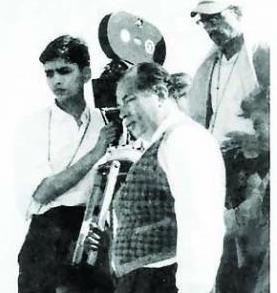
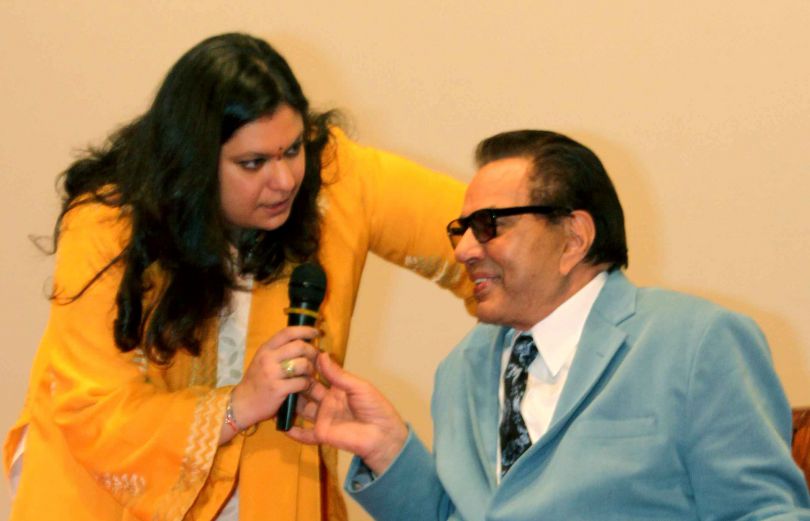
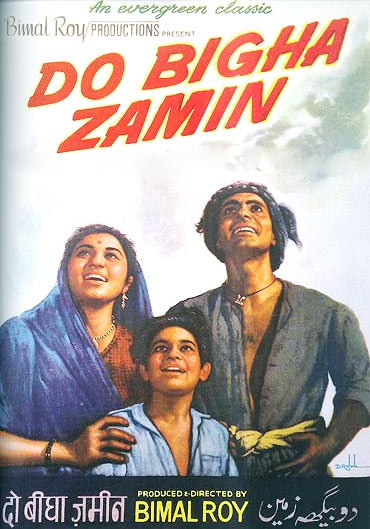
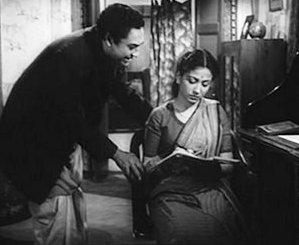
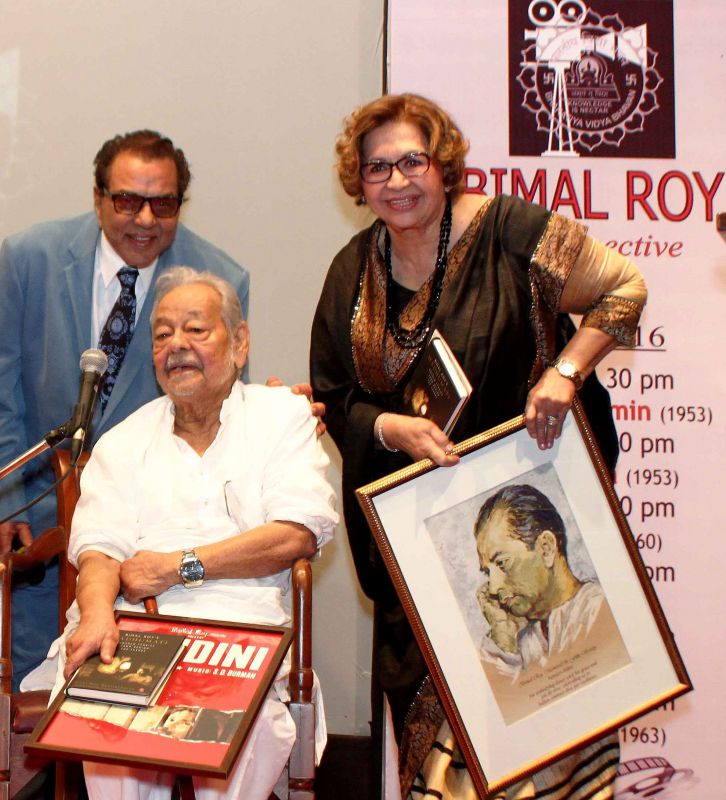
 Anwesha Arya, Drisha Acharya and Rinki Bhattacharya, with Dharmendra; three
Anwesha Arya, Drisha Acharya and Rinki Bhattacharya, with Dharmendra; three 










